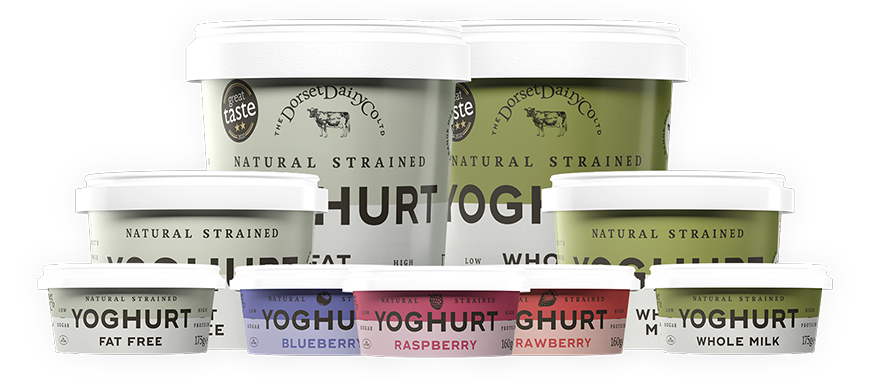Item added to your cart


Natural
Nutritious
We believe that natural, unprocessed food with a clear provenance is the best and healthiest kind of food.
The Concept


We believe that natural, unprocessed food with a clear provenance is the best and healthiest kind of food.
We believe that less is more. That's why there are only two ingredients in our yoghurt - milk and live bio cultures. For every litre of yoghurt, we start with over three litres of milk and after adding our carefully selected cultures (including probiotics), it is strained using traditional methods to create a thick, creamy texture packed with protein. We currently offer two products, Whole Milk Dorset Strained Yoghurt and Fat Free Dorset Strained Yoghurt.
We pump the milk through a filter and it either goes straight into the vat, or takes a short detour through the separator (if it's destined for our fat free or low fat yoghurt). The milk is then heated to pasteurise it and, more importantly for our yoghurt, to denature the whey proteins and make them attach themselves to the casein proteins. Put simply, this is how we retain the valuable protein during the straining process.
After a thorough mix, the milk and cultures are left for a few hours so that they can get to know each other better - that's when the magic happens!
Using our very own unique straining method, we drain off the whey (mainly water and lactose). This leaves us with the luxurious creamy texture that we're looking for and we can now transfer the yoghurt to our filling machine. The finished pots are stacked and stored in our cold room where they dream of being released into the wild and meeting up with a nice fruit filling or nutty companion.
Simple, you use our half-fat strained yoghurt base and fold in a natural berry compote with no added sugar. The texture, taste and nutritional value of our flavoured yoghurts make them perfect for weaning whilst still being enjoyable for all ages.
Alex's grandmother used to mix strained yoghurt with mayonnaise in her potato salad because she said it made it lighter. This was the first recipe that Alex tried out on Dan and since then, she's used it as a healthier alternative to cream, mayonnaise, cream cheese and various other ingredients. Naturally a huge fan of the yoghurt, Alex says 'Even if you just want a guilt-free breakfast, there are so many ways of preparing it and so many different toppings to try, that it never gets repetitive. It's the most used ingredient in our fridge by a mile'.